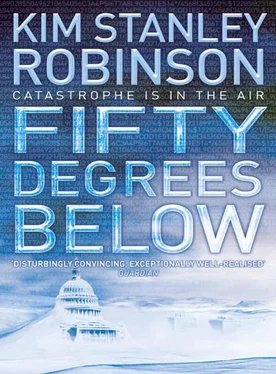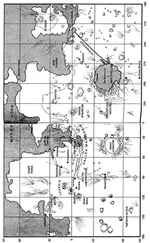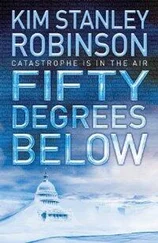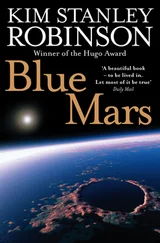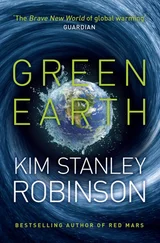He went out to a local cyber-cafe and paid cash to get on one of the house machines. Seating himself before it with a triple espresso, he looked around to see what he could find.
The first sites that came up told the story of the case of the Policy Analysis Market proposal, which had blown up in the face of DARPA, the Defense Advanced Research Projects Agency, some time before. John Poindexter, of Iran-Contra fame, had set up a futures market in which participants could bet on potential events in the Middle East, including possibilities like terrorist attacks and assassinations. Within a week of announcing the project Poindexter had been forced to resign, and DARPA had cut off all funds not just for the PAM project, but for all research into markets as predictive tools. There were protests about this at the time, from various parties convinced that markets could be powerful predictors, distilling as they did the collective information and wisdom of many people, all putting their money where their mouths were. Different people brought different expertise to the table, it was claimed, and the aggregated information was thought to be better able to predict future performance of the given commodity than any individual or single group could.
This struck Frank as bullshit, but that was neither here nor there. Certainly the market fetishists who dominated their culture would not give up on such an ideologically correct idea just because of a single public relations gaffe. And indeed, Frank quickly came on news of a program called ARDA, Advanced Research and Development Activity, which had become home to both the Total Information Awareness program and the ideas future market. ARDA had been funded as part of the ‘National Foreign Intelligence Program,’ which was part of an intelligence agency that had not been publicly identified. ‘Evidence Extraction,’ ‘Link Discovery,’ ‘Novel Intelligence from Massive Data’; all kinds of data-mining projects had disappeared with the futures market idea down this particular rabbit hole.
Before it left public view along with the rest of this kind of thing, the idea futures market concept had already been fine-tuned to deal with first iteration problems. ‘Conditional bidding’ allowed participants to nuance their wagers by making them conditional on intermediary events. And – this jumped out at Frank as he read – ‘market makers’ were added to the system, meaning automated bidders that were always available to trade, so that the market would stay liquid even when there were few participants. The first market maker programs had lost tremendous amounts of money, so their programmers had refined them to a point where they were able to compete successfully with live traders.
Bingo. Frank’s investors.
The whole futures market concept had then gone black, along with ARDA itself. Wherever it was now, it undoubtedly included these programs that could trade in the futures of researchers and their ideas, predicting which would prosper by using the collective pooling of information envisioned in the Total Information Awareness concept, which had dreamed of collating all the information everywhere in the datasphere.
So: virtual markets, with virtual participants, creating virtual results, tracked by real people in real security agencies. All part of the newly secure environment as envisioned in the Homeland Security acts. That these people had chosen a Nazi title for their enterprise was presumably more a tribute to their ignorance and stupidity than to any evil intent. Nevertheless it was not reassuring.
Briefly Frank wondered if he could learn enough to do some reverse transcription, and use this system against itself. Google-bombing was one method that had successfully distorted the datasphere, placing information in ways that caused it to radiate out through the system inaccurately. That particular method had been countered by blockers, but other methods remained out there, using the cascading recombinant math that was part of the algorithm family that both Frank and Yann Pierzinski studied. Pierzinski was the young hotshot, blazing out into new territory; but it was Frank who had recognized what his newly powerful algorithm might do in the real world. Now maybe he had identified another potential application. Yann never would; he was one of those mathematicians who just didn’t care about other stuff. There were theorists and there were engineers, and then there were the few who straddled the two realms, identifying the theories that were most likely to bear fruit in real-world accomplishment, and could suggest to engineering types how they might go about implementing things. That was Frank’s ability as he saw it, and now he wondered how one might formulate the problem for a mathematician, and then an engineering team …
Frank almost called Edgardo, as a fellow realm-straddler, to ask him what he knew; because among other factors, Edgardo had come to NSF from DARPA. DARPA was like NSF, in that it staffed itself mostly with visiting scientists, although DARPA stints were usually three to four years rather than one or two. Edgardo, however, had only lasted there a year. He had never said much about why, only once remarking that his attitude had not been appreciated. Certainly his views on this surveillance matter would be extremely interesting –
But of course Frank couldn’t call him. Even his cell phone might be bugged; and Edgardo’s too. Suddenly he recalled that workman in his new office, installing a power strip. Could a power strip include a splitter that would direct all data flowing through it in more than one direction? And a mike and so on?
Probably so. He would have to talk to Edgardo in person, and in a private venue. Running with the lunchtime runners would give him a chance at that; the group often strung out along the paths.
He needed to know more. Already he wished Caroline would call again. He wanted to talk to everyone implicated in this: Yann Pierzinski – meaning Marta too, which would be hard, terrible in fact, but Marta had moved to Atlanta with Yann and they lived together there, so there would be no avoiding her. And then Francesca Taolini, who had arranged for Yann’s hire by a company she consulted for, in the same way Frank had hoped to. Did she suspect that Frank had been after Yann? Did she know how powerful Yann’s algorithm might be?
He googled her. Turned out, among many interesting things, that she was helping to chair a conference at MIT coming soon, on bioinformatics and the environment. Just the kind of event Frank might attend. NSF even had a group going already, he saw, to talk about the new federal institutes.
Meet with her first, then go to Atlanta to meet with Yann – would that make his stock in the virtual market rise, triggering more intense surveillance? An unpleasant thought; he grimaced.
He couldn’t evade most of this surveillance. He had to continue to behave as if it wasn’t happening. Or rather, treat his actions as also being experiments in the sensitivity of the surveillance. Visit Taolini and Pierzinski, sure, and see if that gave his stock a bump. Though he would need detailed information from Caroline to find out anything about that.
He e-mailed the NSF travel office and had them book him flights to Boston and back. A day trip ought to do it.
Some mornings he woke to the sound of rain ticking onto his roof and the leaves. Dawn light, muted and wet; he lay in his sleeping bag watching grays turn silver. His roof extended far beyond the edges of his plywood floor. When he had all the lines and bungee cords right, the clear plastic quivered tautly in the wind, shedding its myriad deltas of water. Looking up at it, Frank lay comfortably, entirely dry except for that ambient damp that came with rain no matter what one did. Same with all camping, really. But mostly dry; and there he was, high in the forest in the rain, in a rain forest canopy, encased in the splashing of a million drips, and the wet whoosh of the wind in the branches, remaining dry and warm watching it all. Yes, he was an arboreal primate, lying on his foam pad half in his sleeping bag, looking through an irregular bead curtain of water falling from the edge of his roof. A silvery green morning.
Читать дальше
